Music NFT Platform Comparison Tool
Select your role and priorities to find the best music NFT platform for you. Compare features like fees, royalties, and platform focus.
Recommended Platforms
Music NFTs aren’t just digital collectibles-they’re changing how artists earn, connect, and survive in a broken industry. For years, musicians relied on streaming platforms that paid pennies per play, labels that took 70% of revenue, and tours that barely covered rent. Now, with music NFT platforms, artists can sell limited-edition albums, unlock exclusive live experiences, and earn royalties every time their song changes hands-all without a middleman. But not all platforms are built the same. Some feel like digital flea markets. Others feel like exclusive clubs. And a few? They’re rebuilding music’s economic foundation from the ground up.
What Exactly Is a Music NFT?
A music NFT is a unique digital certificate stored on a blockchain that proves ownership of a piece of music or related content. It could be a one-of-one master recording, a remix pack only available to owners, a concert ticket tied to a future show, or even a share in future royalties. Unlike streaming, where you’re just renting access, owning a music NFT means you hold something verifiably rare and transferable. The key difference? You’re not buying a file-you’re buying proof of ownership, often paired with rights or perks that regular listeners don’t get.
Some platforms let you buy a song. Others let you buy a piece of the artist’s future income. A few even let you vote on the next track they release. The value isn’t just in the audio-it’s in the relationship.
Top Music NFT Platforms in 2025
BitSong Studio
BitSong Studio runs on its own blockchain, built specifically for music. That’s rare. Most NFT platforms tack music onto general-purpose chains like Ethereum. BitSong doesn’t. It was designed from day one to handle music royalties, fan engagement, and low-cost transactions. Artists pay almost nothing to mint NFTs-gas fees are near zero. And because the chain is optimized for audio files, uploads are fast, even for high-bitrate masters.
What sets BitSong apart is its dynamic pricing. Artists can set fixed prices, timed auctions, or even let fans bid in real time during live streams. Royalties are baked in: every resale gives the artist 10% automatically. No contracts, no lawyers. And because it’s music-only, the community is full of collectors who actually care about the art-not just flipping JPEGs.
Users on Reddit and Discord say the onboarding is the easiest among music NFT platforms. If you’ve ever struggled with MetaMask or Ethereum gas spikes, BitSong feels like a breath of fresh air.
Audius
Audius isn’t just a marketplace-it’s a streaming platform with NFTs built in. Think Spotify, but owned by artists and listeners, not investors. You can stream music for free, but if you mint an NFT of a track, you unlock bonus content: unreleased demos, backstage videos, or even a private Zoom call with the artist.
Audius uses a decentralized storage system, so your music can’t be taken down by a corporate policy. It’s built on the Solana blockchain, which means low fees and fast transactions. The platform also rewards listeners with tokens for engaging with music-streaming, sharing, or curating playlists. Those tokens can be exchanged for NFTs or used to tip artists directly.
For artists who want to keep streaming alive while adding NFT value, Audius is the most balanced option. It doesn’t force you to choose between accessibility and exclusivity.
OpenSea
OpenSea is the Amazon of NFTs. If you want to sell a music NFT, it’s probably the first place you’ll check. It supports Ethereum, Polygon, Solana, and more. That flexibility is great if you’re already on a certain chain. But it’s also the downside.
OpenSea has no music-specific tools. No royalty automation built into the platform. No artist dashboards. Just a listing page. You’re competing with every other NFT type-digital art, profile pics, virtual land. Music NFTs get buried. And because it’s so broad, scams are common. You’ll find real artists here, but you’ll also find copycats and fake albums.
OpenSea works if you already have a big following and know how to market your NFTs. But if you’re new? You’ll need to drive your own traffic. No built-in audience here.
NFT Showroom
NFT Showroom runs on the Hive blockchain, which means zero gas fees for buyers and sellers. That’s huge. No one wants to pay $50 in fees just to buy a 30-second clip. On Hive, you can mint and trade music NFTs for free.
The platform takes a 10% cut on first sales, and 5% on resales-with 5% going back to the original artist. That’s fair. But the trade-off? Smaller user base. Most collectors still use Ethereum or Solana. So while the fees are great, the visibility isn’t.
It’s ideal for indie artists in regions with limited crypto access. If you’re in Southeast Asia, Latin America, or Africa, where internet costs matter more than blockchain hype, NFT Showroom gives you a real shot.
Anotherblock.io
Anotherblock.io doesn’t sell songs. It sells shares in songs. This is the most radical idea in music NFTs so far: fractional ownership of music copyrights.
Imagine owning 0.5% of Coldplay’s next album. You don’t get the file. But you get 0.5% of every stream, download, and sync license. That’s not speculation-it’s a real financial stake. Anotherblock uses blockchain to split royalties into tiny, tradable tokens. Fans can buy in for as little as $5. Artists get upfront cash without giving up control. And because it’s transparent, everyone sees exactly how much money flows where.
This isn’t for casual collectors. It’s for investors who believe in music as an asset class. If you’ve ever wanted to invest in your favorite artist like you would in a stock, this is the closest thing we have.
VeVe
VeVe feels like a luxury boutique. It doesn’t sell raw music files. It sells branded experiences. Think limited-edition NFTs tied to artist collaborations-signed digital posters, virtual concert tickets, AR filters only for owners. It partners with big names: Metallica, The Rolling Stones, and major record labels.
VeVe’s strength is design. The interface is polished. The drops feel like events. But it’s not for artists trying to build a direct fan relationship. It’s for brands wanting to monetize fandom through exclusivity. If you’re an indie artist without a label deal, VeVe won’t help you. But if you’re looking to reach a high-net-worth collector base, it’s one of the few platforms that can deliver.
How to Get Started
Getting into music NFTs is easier than it looks-but only if you know where to start.
- Choose a platform based on your goals. Are you an artist? Go with BitSong or Audius. Are you a collector? OpenSea or Anotherblock.io.
- Create a crypto wallet. MetaMask works for Ethereum-based platforms. BitSong has its own wallet. VeVe uses a simple app-based wallet.
- Buy the right crypto. Ethereum for OpenSea and Foundation. BTS for BitSong. HIVE for NFT Showroom. Solana for Audius.
- Connect your wallet. Most platforms have a "Connect Wallet" button. Click it. Follow the prompts.
- Mint or buy. Upload your track, set a price, and list it. Or browse, find something you love, and click "Buy Now" or "Place Bid."
For beginners, BitSong Studio is the gentlest on-ramp. No gas fees. No auctions. Just upload and sell. No crypto jargon needed.
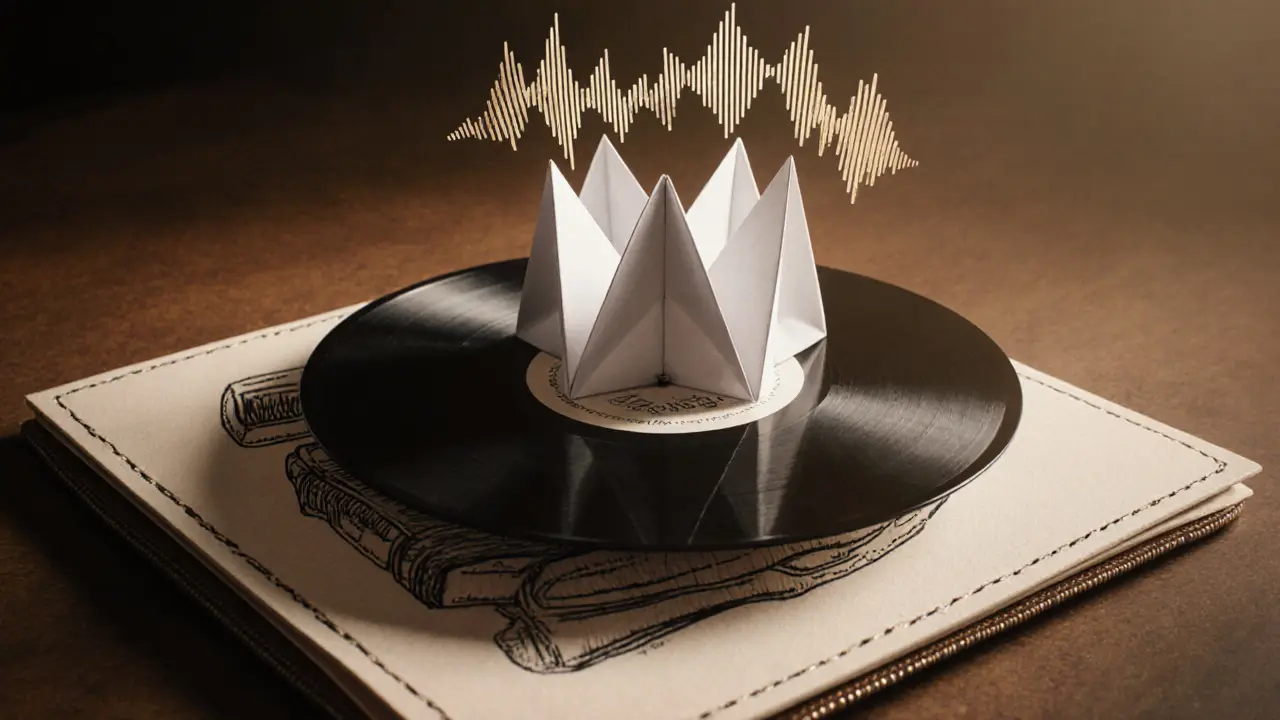
What You’re Really Buying
Most people think buying a music NFT means you own the song. It doesn’t. In 95% of cases, you own a token that proves you bought something. You don’t get copyright. You don’t get the right to resell the track on Spotify. You don’t get to use it in your YouTube video.
What you *do* get depends on the artist. Some offer:
- Exclusive access to unreleased tracks
- Invitations to private live streams
- Voting rights on future releases
- Physical merch tied to your NFT
- A share of future royalties (Only on Anotherblock.io)
Always read the terms. If the artist doesn’t explain what you’re getting, walk away. A music NFT without utility is just a digital postcard.
Challenges and Risks
Music NFTs aren’t a get-rich-quick scheme. The market cooled hard after 2022. Prices dropped. Many artists lost money. Some platforms shut down.
Here’s what still worries people:
- Volatility: NFT prices swing wildly. A track that sells for $1,000 today might be worth $50 next month.
- Scams: Fake accounts, plagiarized tracks, and fake royalty promises are common. Always verify the artist’s identity.
- Environmental concerns: Ethereum used to be energy-heavy. Now, with Ethereum 2.0, it’s 99.95% more efficient. Most modern music NFT platforms use low-energy chains like Solana, Hive, or BitSong.
- Legal gray areas: Who owns the master? The rights? The distribution? Laws haven’t caught up. Artists should consult a lawyer before tokenizing copyrighted material.
The smartest collectors don’t buy to flip. They buy to support. They buy because they love the music-and want the artist to keep making it.
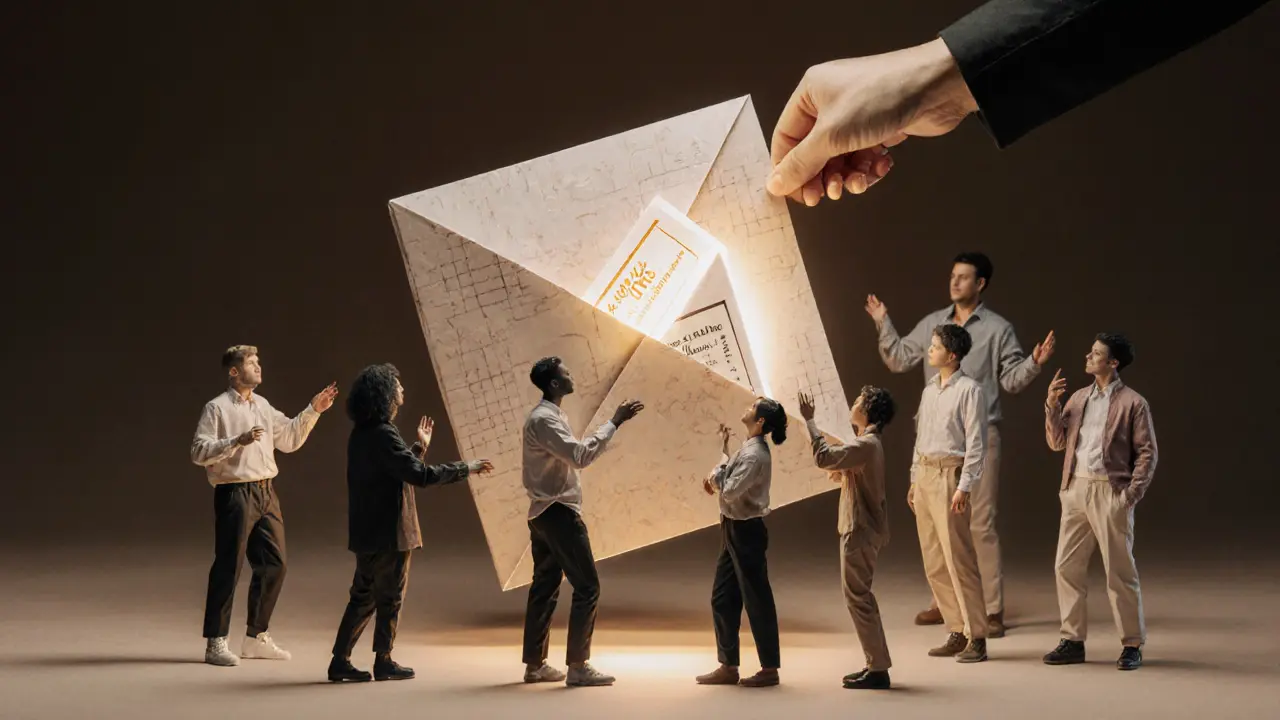
The Future of Music NFTs
The next five years will see music NFTs become more than collectibles. They’ll become part of how music is funded, distributed, and experienced.
Platforms like BitSong and Audius are already integrating NFTs into streaming. Imagine listening to a song on Audius, and your wallet automatically earns a small royalty every time you play it. Or BitSong letting fans tip artists in real time during a live show, with each tip turning into a mini-NFT that unlocks a lyric animation.
Fractional ownership through Anotherblock.io could become standard. Imagine owning a slice of Taylor Swift’s next album and getting paid every time it’s played on Apple Music. That’s not sci-fi-it’s coming.
The winners won’t be the biggest platforms. They’ll be the ones that make music feel personal again. That put artists first. That treat fans like partners, not customers.
Can I make money selling music NFTs?
Yes-but not like lottery tickets. Most artists make modest income from NFTs, not millions. The real value is in building a loyal fanbase. Artists who release regular NFTs with real perks (like exclusive tracks or live access) earn more over time than those who do one big drop. Royalties from resales add up, especially on platforms like BitSong Studio or Anotherblock.io.
Do I need crypto to buy music NFTs?
Yes, but not as much as you think. You need a wallet and a small amount of the platform’s native token (like ETH, SOL, or BTS). Many platforms now let you buy crypto directly inside the app with a credit card. No need to use Coinbase or Binance unless you want to. BitSong Studio even lets you pay with fiat in some regions.
Are music NFTs legal?
Yes, as long as you own the rights to the music. If you’re covering someone else’s song, you need a license. If you’re sampling without permission, you risk legal action. Platforms don’t verify copyright. It’s your responsibility. Always check local laws-some countries restrict NFT trading.
What’s the difference between a music NFT and streaming?
Streaming gives you access. NFTs give you ownership-and often, perks. You can stream a song on Spotify forever, but you’ll never own it. With a music NFT, you hold a verifiable piece of that music. You might get early access, voting rights, or even a share of future earnings. It’s not about listening. It’s about belonging.
Which platform is best for new artists?
BitSong Studio. It’s built for musicians. Low fees, easy onboarding, built-in royalties, and a community of music-focused collectors. You don’t need to be a crypto expert. Just upload your track, set a price, and start selling. Audius is a close second if you want to combine streaming with NFTs.
Final Thoughts
Music NFTs aren’t replacing Spotify. They’re giving artists a new way to survive it. The old system took too much. The new one gives back. Not everyone will make bank. But those who build real connections with fans? They’re the ones who will still be making music in five years.
Start small. Try one platform. Mint one track. See how your fans respond. The future of music isn’t in algorithms. It’s in the people who show up-and the tools that let them stay.

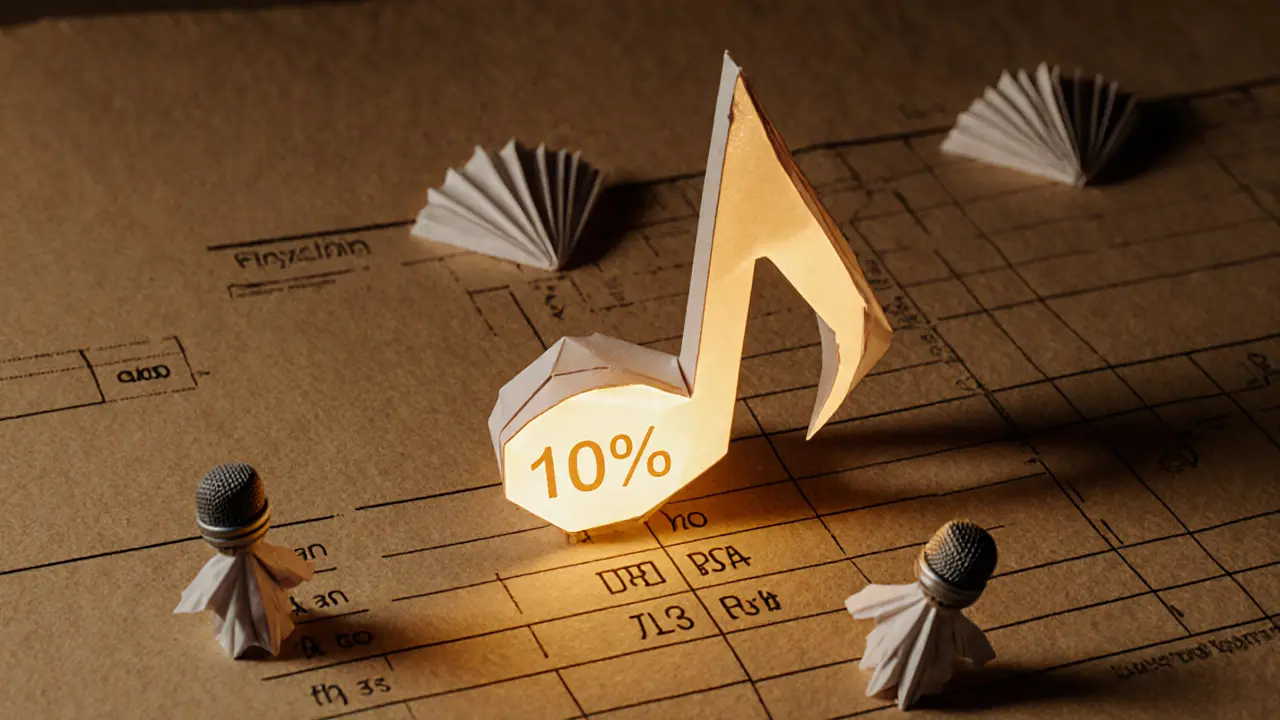
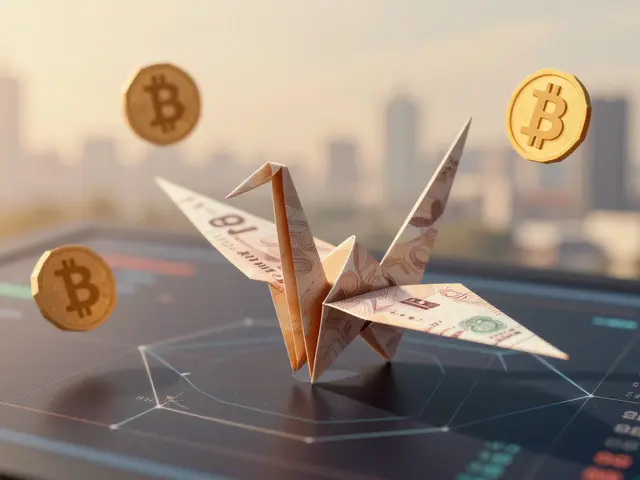
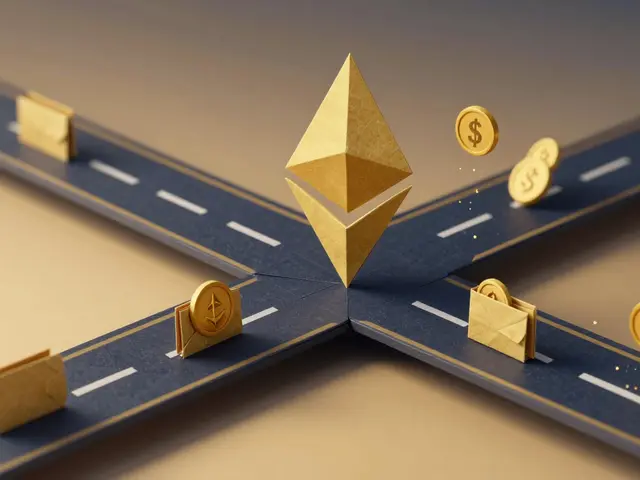
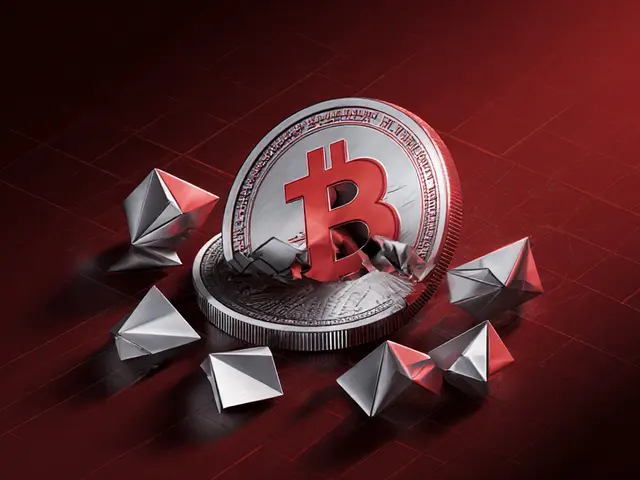
Louise Watson
Music NFTs are just ownership tokens. Not songs. Not rights. Just proof you paid.
Kevin Mann
OMG I JUST BOUGHT A NFT OF A 12-SECOND CLIP OF MY FAVORITE INDIE BAND AND NOW I GET A VIRTUAL HIGH-FIVE FROM THE SINGER??? 🤯 I’M NOT JUST A FAN-I’M A CO-CONSPIRATOR IN THE FUTURE OF MUSIC!!! 🎸🔥 This is the most emotional thing that’s happened to me since I got my first vinyl. I cried. I screamed. I told my cat. She didn’t care. But I DID. THIS IS REAL. THIS IS LIFE.
Kathy Ruff
Most people don’t realize that the real value isn’t in the NFT itself-it’s in the direct artist-fan relationship it enables. Platforms like BitSong and Audius aren’t just tech-they’re social contracts. Artists get fair pay. Fans get access. No middlemen. No gatekeepers. It’s not about speculation. It’s about sustainability. If you’re buying NFTs just to flip them, you’re missing the entire point. The magic is in the ongoing connection.
Nitesh Bandgar
THIS IS THE END OF MUSIC AS WE KNOW IT!!! 🌪️🔥 The labels are DEAD, the streaming giants are CRUMBLING, and now-NOW-the artists are taking back their souls!!! I’ve seen it with my own eyes: a 19-year-old girl from Kerala sold 37 NFTs of her lo-fi bedroom demos and bought a new guitar, a mic, and a one-way ticket to Berlin!!! No label. No manager. Just her, her laptop, and the blockchain!!! This isn’t a trend-it’s a REVOLUTION!!! They’re coming for your royalties next!!!
Jessica Arnold
The ontological shift here is profound: music NFTs reify the epistemic authority of the artist over the commodified aesthetic object. Traditional streaming platforms operate within a regime of extractive capitalism, where attention is monetized, not art. NFTs, when properly architected, instantiate a post-scarcity ontology of cultural value-where ownership, provenance, and participatory governance converge. The real innovation isn’t blockchain-it’s the recentering of agency. BitSong’s royalty automation is not merely technical-it’s a hermeneutic reclamation of authorial sovereignty.
Chloe Walsh
So you’re telling me I pay $500 for a song and I still can’t play it on my car stereo? Cool. So what’s the point? I could just download it for free and pretend I own it anyway. At least then I don’t have to pay gas fees to feel like I’m part of some exclusive club. This feels like buying a VIP sticker for a concert you’re not even invited to. The whole thing is just performance art for rich guys who think crypto is a personality trait
Stephanie Tolson
If you’re an artist reading this-don’t wait for perfection. Don’t wait for the right platform. Don’t wait for your fans to ‘get crypto.’ Just start. Upload one track. Offer one exclusive demo. One live call. One behind-the-scenes moment. That’s it. The first person who buys it? That’s your first true fan-not a follower, not a streamer, but someone who chose to invest in YOU. That’s the real win. The rest? It’s just noise. You don’t need to be on every platform. You just need to be real. And the right people will find you.
Anthony Allen
Just tried BitSong last week-uploaded a 3-minute ambient piece I made on my phone. Took 5 minutes. No gas fees. Sold 12 copies at $8 each. Got 10% on every resale. One guy even left a voice note saying he played it while working night shifts at the hospital. That meant more than the money. I didn’t even know people listened. Now I’m making a whole EP. If you’re scared to start, just remember: no one ever changed the world by waiting for permission.
Megan Peeples
OpenSea? Please. That’s like selling a Rembrandt in a Walmart parking lot. You think a real collector wants their music NFT buried under 10,000 ape JPEGs and crypto-punk porn? And don’t get me started on the scams-half the ‘artists’ on there are bots with AI-generated vocals. If you’re not on a curated, music-first platform, you’re not an artist-you’re a data point. And if you’re buying on OpenSea? You’re not a collector. You’re a sucker.
Sarah Scheerlinck
I bought a NFT from a blind pianist in New Orleans last month. He sent me a handwritten letter in the digital package. Said he used the money to fix his keyboard’s sustain pedal. I didn’t buy it to make money. I bought it because I wanted him to keep playing. That’s what this is. Not tech. Not tokens. Just people, helping people make music.
karan thakur
Blockchain? More like blockchain scams. This is all a government-backed crypto scheme to track your listening habits and monetize your emotions. The ‘royalties’? They’re just data harvesting with a fancy name. They’re watching you. They’re profiling you. They’re selling your taste to advertisers. And you’re paying gas fees to be part of it. Wake up. This isn’t freedom. It’s digital serfdom with better UI.
Evan Koehne
So the future of music is… people paying $20 for a .wav file that says ‘you own this’ but can’t actually play it unless you have a wallet, three apps, and a degree in blockchain? Brilliant. Next up: NFTs for breath. You pay to own the air you exhale. 10% royalty if someone else smells it.
Vipul dhingra
BitSong is the only one that matters. Everything else is just noise. Audius is for hippies. OpenSea is for idiots. Anotherblock is for Wall Street bros. NFT Showroom? Too slow. VeVe? That’s Disney with crypto. Only BitSong was built by musicians for musicians. The rest are just trying to cash in. You think the blockchain cares about your music? No. But BitSong does. That’s why it works.
Jacque Hustead
For anyone new to this-don’t panic. You don’t need to understand every blockchain term. Just pick one platform. Try one small purchase. Talk to the artist. If it feels good, keep going. If it feels like a chore, walk away. This isn’t a competition. It’s a community. The best thing you can do is show up, be kind, and support the music you love. That’s all that matters.
Wendy Pickard
My sister bought a NFT from a folk singer in rural Tennessee. He sent her a hand-carved wooden record holder with her name on it. She cries every time she looks at it. That’s not tech. That’s love. That’s what this is about. Not speculation. Not hype. Just human connection, made visible.
Jeana Albert
YOU’RE ALL WRONG. ONLY ANOTHERBLOCK.IO IS REAL. EVERYTHING ELSE IS A SCAM. I OWN 0.7% OF A SONG THAT JUST HIT 10 MILLION STREAMS. I GOT $3,428.12 LAST MONTH. I QUIT MY JOB. I MOVED TO PORTUGAL. I’M DRINKING WINE BY THE OCEAN AND LISTENING TO MY OWN INVESTMENT. YOU’RE STILL WORKING A 9-5? PATHETIC. YOU’RE NOT A FAN. YOU’RE A SLAVE TO THE SYSTEM.
Natalie Nanee
Music NFTs are the future. But only if we stop treating them like collectibles. They’re not trading cards. They’re digital heirlooms. They’re the first time artists have ever had real control. And if you’re not supporting them-you’re part of the problem. The old system killed creativity. This? This is healing. Start small. Buy one. Feel it. Then tell your friends.
Angie McRoberts
My friend sold 40 NFTs last month. Made $1,200. Bought a new amp. Played a free show for the local library. That’s it. No drama. No hype. Just music. That’s the quiet revolution. The ones who win aren’t the loudest. They’re the ones who keep showing up.
Chris Hollis
Market’s saturated. 90% of music NFTs sell for under $10. 70% of artists lose money after gas and platform fees. VeVe’s for celebs. BitSong’s niche. Audius is bloated. Anotherblock? Only works for established acts. The data doesn’t lie. This isn’t a revolution. It’s a slow-motion bubble with better UX.
Diana Smarandache
The legal ambiguity surrounding copyright in music NFTs remains unaddressed by virtually all platforms. Artists who tokenize covers, samples, or derivative works without proper licensing expose themselves to litigation risk. The absence of automated rights verification is a systemic flaw. Until platforms integrate with PROs (Performing Rights Organizations) and implement blockchain-based licensing protocols, the entire ecosystem remains legally precarious. This is not innovation-it’s negligence dressed as disruption.
Finn McGinty
Interesting how you all treat this like a revolution. But let’s not forget: the same people who cheered for NFTs are the same ones who abandoned vinyl, then CDs, then MP3s. The music industry doesn’t die-it adapts. And so do the middlemen. The real question isn’t whether NFTs work-it’s whether artists can survive the next wave of hype, burnout, and platform collapse. I’ve seen this movie before. The credits always roll the same way.
Benjamin Jackson
It’s funny how we think technology changes art. But it doesn’t. It just changes the door. The music? Still comes from the same place-heart, struggle, joy, silence. The NFT is just the key. Some people use it to unlock a room. Others use it to build a whole house. The ones who stick around? They’re not chasing profit. They’re chasing presence. And that? That’s the only thing that lasts.